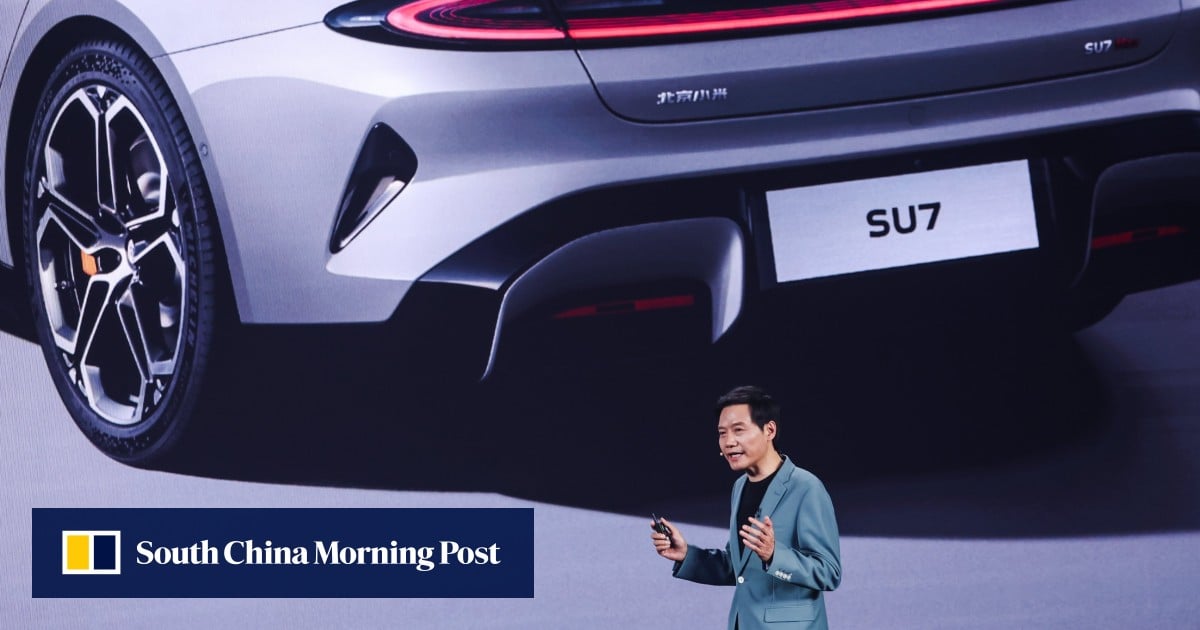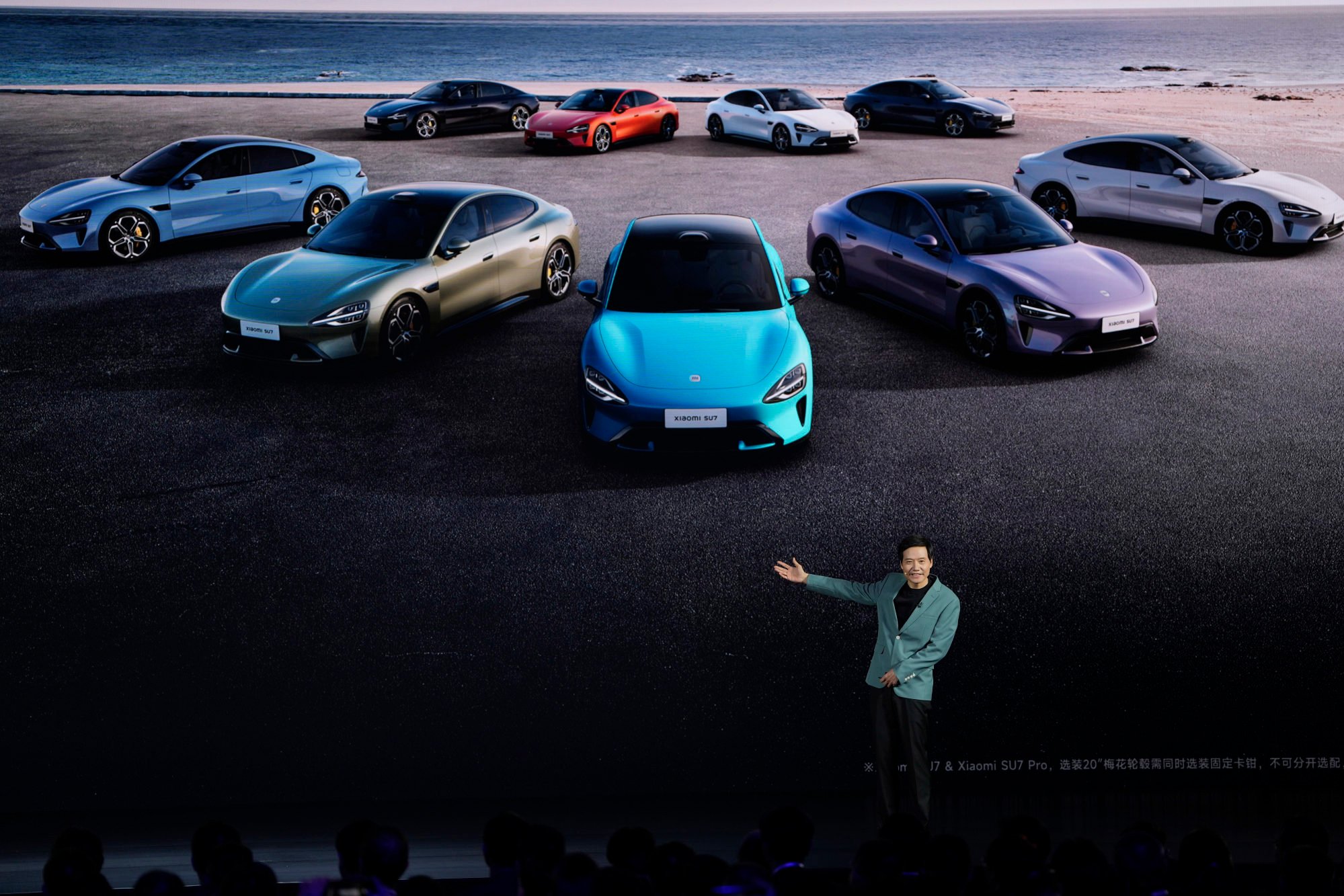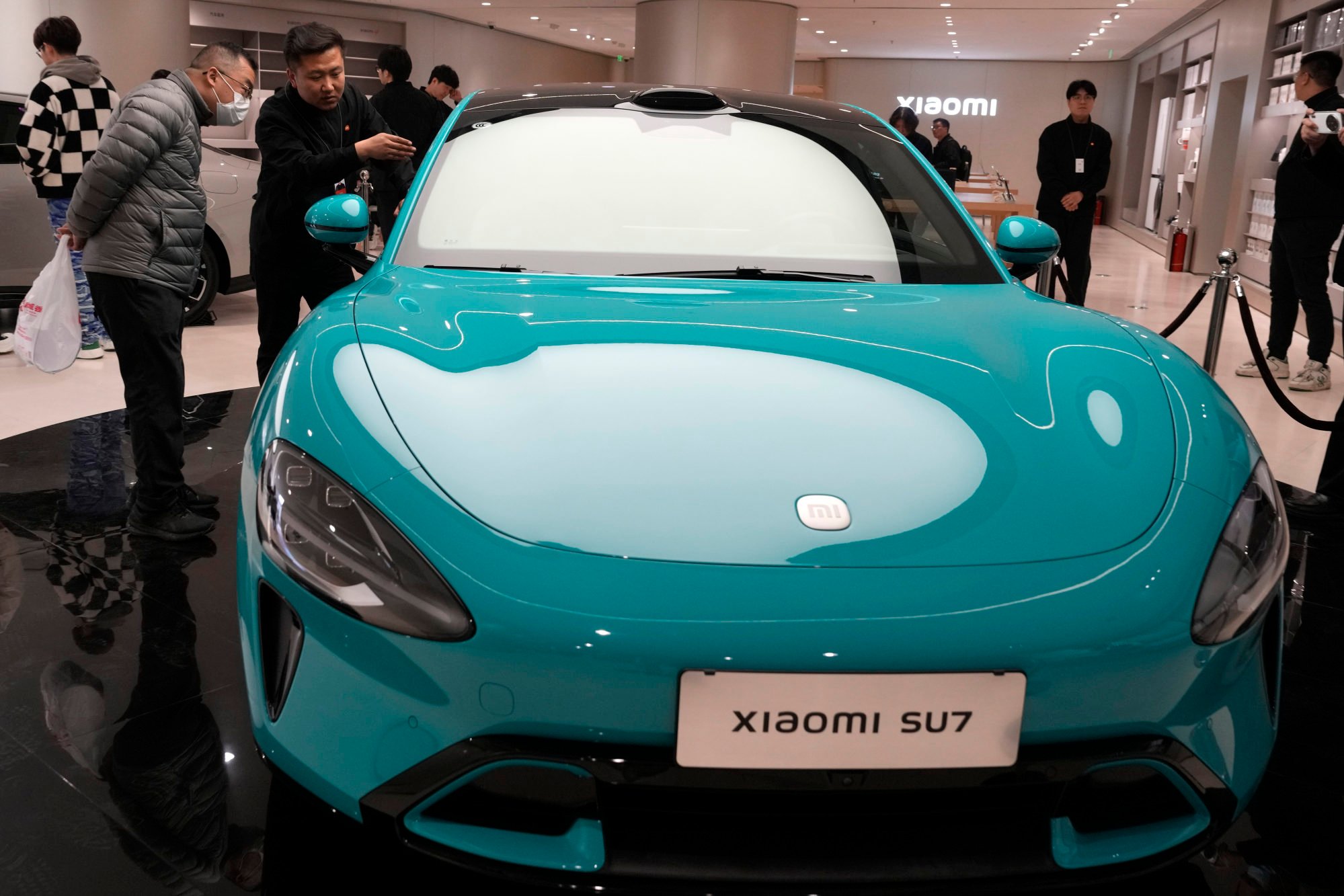
28 Mar Xiaomi surprises with lower-than-expected pricing on new EVs, in new challenge to Tesla
The high-end SU7 Pro costs 245,900 yuan while the SU7 Max, the most powerful vehicle in the series, was priced at 299,900 yuan. Xiaomi has started pre-orders on the vehicles, including 5,000 units of the “Founders” version of the SU7 and SU7 Max, said Lei Jun, Xiaomi’s founder, chairman and chief executive.
Current affairs: sparks fly between China, US over EVs before Janet Yellen visit
Current affairs: sparks fly between China, US over EVs before Janet Yellen visit
“We have benchmarked our car with [Tesla’s] Model 3 ,” he said, to a cheering audience in Beijing’s southern hi-tech economic development zone.
The Xiaomi CEO said the SU7, which has a 700-km battery life, is priced lower than the Tesla Model 3, but added that 90 per cent of its specifications surpass the Tesla model. “I believe consumers will make their choices,” he said.
Analysts had forecast that Xiaomi would price its vehicles in a range between 200,000 yuan and 370,000 yuan.

“The car is priced at a level below market expectations since analysts had forecast that the SU7 would start at 250,000 yuan,” said Phate Zhang, founder of Shanghai-based electric-vehicle data provider CnEVPost. “The attractive prices will help Xiaomi draw a huge number of buyers and force some of its competitors to offer discounts to stay competitive.”
Chinese EV tycoons including He Xiaopeng of Xpeng Motors, William Li Bin of Nio, and Li Xiang of Li Auto were present at the event. Lei said their valuable advice in the past three years helped Xiaomi avoid many missteps in its first EV venture.
Ahead of Thursday’s launch, Lei said in a post on microblogging platform Weibo that the SU7 was “the best looking and smartest car with the best driving experience” in the domestic market segment of EVs that cost under 500,000 yuan.

The SU7 launch, which Lei has described as his final major endeavour, marks the culmination of Xiaomi’s ambitious three-year effort to diversify its revenue stream beyond smartphones and other consumer electronics devices. The Beijing-based company has pledged to invest US$10 billion over a decade in its EV enterprise.
Equipped with a smart-driving system and digital cockpit, the SU7 has been displayed at 59 showrooms in 29 cities across the country ahead of its commercial launch on Thursday. Starting Friday, potential buyers can reserve a test drive at Xiaomi Auto retail stores in 29 cities across China.
The launch event in Beijing was packed with guests including many Xiaomi gadget owners who cheered on the company’s latest achievement. Three SU7 sedans in different colours were displayed at the event.
Xiaomi founder determined to make cars despite Apple’s EV exit
Xiaomi founder determined to make cars despite Apple’s EV exit
Growth in China’s EV market is expected to decline for a second consecutive year, according to a Bloomberg report, which cited an industry body’s prediction that sales growth would fall 25 per cent this year after dropping 36 per cent in 2023.
